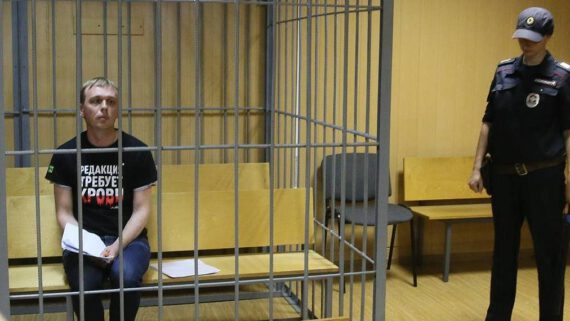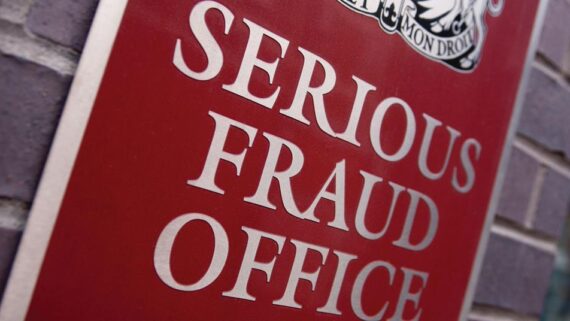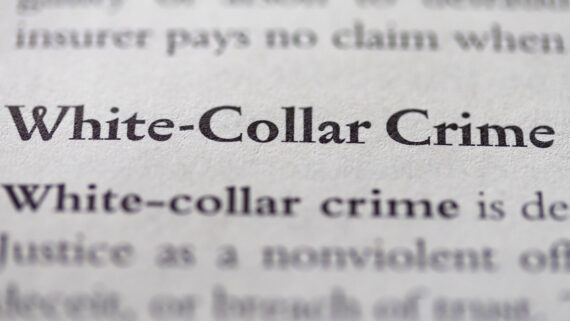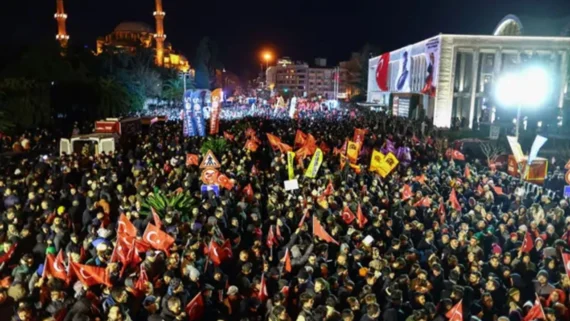We have extensive experience in conducting corruption-related internal investigations for companies – private and public, large and small – around Turkey. When issues arise for our clients, we are well positioned to help. Our assistance ranges from working with our clients’ internal teams to handle small investigations to executing major national investigations. If clients face government investigations, administrative fines or criminal charges, we have the experience and credibility to help them navigate government scrutiny and contest charges in a courtroom when necessary.
Corruption & Bribery Laws in Turkey
Corruption & Bribery Laws in Turkey establish a strict legal framework to prevent and penalize illicit practices in both public and private sectors, ensuring transparency, accountability, and compliance not only with international anti-corruption standards but also domestic regulations. In recent years, regulators across the globe stepped up their pursuit of allegations of bribery and corrupt practices. Spurred on by changes in political leadership and increased scrutiny of bribery and corruption during the pandemic, we expect to see a sustained increase in anti-corruption and bribery investigations in the fortcoming years.
Though the laws relating to corruption have not changed in recent years, the manner in which they are being enforced clearly has. Regulators are increasingly cooperating, and companies must be on top of their compliance obligations in every jurisdiction in which they do business. Through our work, we have identified a number of key compliance issues and questions that concern our clients across all industries in Turkey.
We have seen an increase in the number of investigations and prosecutions in Turkey. There has also been an increase in publication of information regarding high-profile investigations, arrests and prosecutions for corrupt activities in Turkey. Companies operating in Turkey must continue to invest in and expand their compliance programs and tailor them to vagaries of Turkish markets to mitigate risks associated with Turkey’s evolving regulatory frameworks.
Our bribery lawyers provide expert advice and representation for individuals and corporates, whether they are under investigation or need assistance complying with legislation. The Anti-corruption and bribery regulations are wide-reaching and breaches can lead to personal and corporate administrative or criminal liability, with potential sanctions including fines and/or imprisonment.
Being subject to Turkish anticorruption laws
Under Turkish criminal law, not only natural persons are capable of committing criminal offenses, but also legal persons are subject to the Turkish Criminal Code (hereafter TCC) and can be criminally liable under it. Legal entities, however, may be fined under the TCC and Administrative Offences Act (herafter AOA) for crimes and/or regulatory offenses committed by their organs, board members, authorized representative shareholders or management-level employees. In this context, Turkish law strictly distinguishes sactions as penalties and fines; only the latter may be imposed on legal entities. Turkish law clearly includes provisions imposing sanctions on companies for the offenses committed by their representatives.
Under the TCC, individuals are, with rare exceptions, penalised for committing offenses on Turkish territory, including Turkish ships and aircraft. In some cases, however, crimes committed abroad are punishable under the TCC. In other words, Turkish law applies to all criminal acts committed in Turkey. Where a criminal act is partially, or fully, committed in Turkey, or the result of a criminal act occurs in Turkey the offence is presumed to have been committed in Turkey. If the criminal offence is committed: within Turkish territory, airspace or in Turkish territorial waters; on the open sea or in the space extending directly above these waters and in, or by using, Turkish sea and air vessels; in, or by using, Turkish military sea or air vehicles; on or against a fixed platforms erected on the continental shelf or in the economic zone of Turkey then this offence is presumed to have been committed in Turkey. (Art. 8)
Any person who is convicted in a foreign country for an offence committed in Turkey is subject to retrial in Turkey(Art. 9). Any person who is employed as a public officer or is charged with a particular duty abroad by the Turkish State and who, in the course of that employment or duty, commits a criminal offence abroad is tried in Turkey, despite having been convicted in a foreign country in respect of his acts (Art. 10)
Article 13 of the TCC includes some severe violations where the offense is committed against internationally protected legal interests. Some of these crimes include intentional pollution of the environment (Art. 181), production and trade of narcotics or psychotropic substances (Art. 188), facilitating the use of narcotics or psychotropic substances (Art. 190), counterfeiting money (Art. 197), manufacturing and trading of instruments used in the production of money and valuable seals (Art. 200); counterfeiting a seal (Art. 202), seizing control or hijacking of air, sea or rail transport vehicles (Art. 223, paragraphs 2 and 3) and offences relating to the damaging of such vehicles (Art. 152). The listed crimes are subjec to Turkish law regardless of whether or not committed in Turkey or abroad, or by a citizen or non-citizen of Turkey.
Article 12 of TCC extends the applicability of the TCC, to, among others, all other crimes committed abroad to the detriment of a Turkish citizen or to the detriment of a legal personality established under Turkish civil law. Wit the condions that the offender is present in Turkey and there has been no conviction in a foreign country for the same offence then, upon the making of a complaint by the victim, the offender is subject to penalty under Turkish law.
Dealings with third parties
In certain circumstances, individuals can be punished in connection with crimes committed by others if they intentionally instigated or abetted them. Other criminal activities include aiding after the fact, which could potentially give rise to a criminal liability if committed in connection with an unlawful act of a third party.
The Turkish Criminal Code make your company liable for the acts of your subsidiaries and employees. Of course, sanction of improsenment can be imposed upon a legal entity, however, a fine may be imposed on a legal entity if an organ or management-level employee commits a crime or regulatory offense.
In addition, in certain cases, a management-level employee may be liable for the unlawful acts of a subordinate employee in the organization. This only applies under very specific conditions, i.e. where the acting individual had a severe lack of knowledge and, therefore, generally cannot be charged him-/herself, while the supervisor intentionally exploited a respective lack of knowledge to make the subordinate individual commit a criminal offense. Please further note that a violation of obligatory supervision in operations and enterprises may lead to material fines of up to several million euros. Moreover, senior managers may be held personally liability pursuant to Turkey tort law if damage is caused by an assistant employee who has not been diligently selected, instructed, provided with equipment and/or supervised.
Foreign companies conducting business in Turkey often need to rely on the assistance of third parties, such as agents, consultants, subcontractors, and distributors. The third parties may be held liable under the FCPA if these third-party partners solicit or facilitate corrupt payments to Turkish officials. Enforcement authorities of foreign companies will charge companies based on the conduct of their third-party partners under traditional agency principles or theories of authorization and direct or indirect knowledge.
During their investigations, for example the US Department of Justice and Securities and Exchange Commission, often look for specific red flags present within a thirdparty relationship, including excessive payments or commissions, vaguely defined services, and a third party’s close association with Turkish officials.
Foreign companies conducting business in Turkey must analyze the risks inherent in dealing with organizations or individuals associated with Turkish governments. One should note that Turkish economy presents a unique set of risks, as the government may operate through state-owned enterprises or even exercise control over private companies.
Many of the settled cases in Turkey and other convictions have involved intermediaries paying bribes to public officials and/or private individuals.
Because of this, companies should thoroughly evaluate, train, and monitor third-party partners in Turkey. Companies should analyze the risks inherent to the third-party agreement, scrutinize the third party’s background and prior experience, and probe any ties to Turkish officials. Foreign companies are recommended to conduct due diligence to identify high-risk relationships and adopt more robust procedures with regard to these individuals or entities. Additionally, companies should ensure that a third party’s contract states with particularity the legitimate services to be performed and includes a reasonable fee structure. Finally, foreign companies should periodically train and closely monitor all third-party partners in Turkey. When red flags arise during a relationship with a third party, they should be promptly investigated.
Public official in Turkey
According to the article 6 of the TCC, a “public official” is any person who is elected, appointed or chosen in any other way to carry out a public duty for a temporary, permanent or specifically defined time period.
Foreign companies conducting business in Turkey must assess the risks and variables present within each national and local environment. Companies must understand exactly who they are transacting with both directly and indirectly, and whether such persons may be considered foreign officials under the FCPA. Businesses should take particular care when engaging in commercial dealings with entities owned or controlled by Turkish governments. Additionally, companies should maintain effective training and compliance programs designed to prevent and detect FCPA violations.
Related crimes committed alongside bribery
The Turkish law not only prohibits bribery of Turkish officials; it also requires that businesses should (1) keep books and records that accurately reflect company transactions and uses of assets; and (2) maintain a system of internal controls sufficient for management to maintain control over assets.
Bribery is often accompanied by falsification of books and records (such as booking illegal payments as commissions or travel expenses).
Violation of other laws maybe seen in various types;
- Tax violations; for example, company deduction of bribes as legitimate expenses,
- Mail or wire fraud; schemes to defraud victims of money using wire communications or mail,
- Money laundering; conducting financial transactions with the proceeds of unlawful activity and certain bad intent, such as to conceal the true ownership of the funds or evade taxes. Bribery can also give rise to liability for money laundering offenses which includes activities such as facilitation, by any means, of the dishonest justification of the origin of property or income of the perpetrator of a crime.
- Concealing Gains of Crime; in Turkey, it is a criminal act to deal with, handle or become concerned in arrangements involving, criminal property. “Property” is very widely defined and includes money and all forms of property wherever situated. Property is “criminal property” if it constitutes or represents a person’s benefit from criminal conduct and the person knows or suspects that to be the case. The benefits of bribery could therefore be criminal property, and a corporate which knows or suspects that it is handling or dealing with such benefits would need to make an authorized disclosure to avoid liability.
- Securities fraud; materially false or misleading statements in periodic financial reports;
- Other violations of truthful reporting requirements; for example,
Foreign regulators
Foreign regulators, such as the Department of Justice (DOJ) and Securities and Exchange Commission (SEC) in the US and the Serious Fraud Office (SFO) in the UK, continue to enforce their domestic legislation against companies in connection with their operations in Turkey using the extra-territorial jurisdiction provisions of the US Foreign Corrupt Practices Act 1977 (FCPA) and the UK Bribery Act 2010(UKBA).
From Turkey perspective, it is therefore imperative to consider the legal and economic implications of foreign legislation on businesses that operate in Turkey. Foreign companies doing business in Turkey may be subject to the FCPA and /or the UKBA.
The Foreign Corrupt Practices Act (FCPA)
The Foreign Corrupt Practices Act (FCPA) anti-bribery provisions broadly apply to the following three categories of entities and individuals:
- “issuers” and their officers, directors, employees, agents, and stockholders (15 USC 78dd-1); “domestic concerns” and their officers, directors, employees, agents, and stockholders (15 USC 78dd-2); and certain other persons and entities acting under the territorial jurisdiction of the United States (15 USC 78dd-3). In “issuer” is generally defined as any company that issues stock on a securities exchange, or in the over-the-counter market, in the United States and is required to file reports with the U.S. Securities and Exchange Commission (15 USC 78l; 15 USC 78c(a) (8); 15 USC 78o(d)).
- A “domestic concern” is generally defined as: “(A) any individual who is a citizen, national, or resident of the United States; and (B) any corporation, partnership, association, joint-stock company, business trust, unincorporated organization, or sole proprietorship that has its principal place of business in the United States, or which is organized under the laws of a State of the United States or a territory, possession, or commonwealth of the United States” (15 USC 78dd-2(h)(1)).
- Finally, the United States asserts broad territorial jurisdiction over persons and entities that do not qualify as “issuers” or “domestic concerns” where the conduct of such persons or entities directly or indirectly furthers a corrupt payment in violation of the FCPA.
The Department of Justice takes an expansive view of its territorial jurisdiction. Prosecutions have included both foreign and domestic defendants for violating the FCPA criminal anti-bribery provisions, whether the conduct occurred in the United States or abroad, provided that a sufficient link to the United States exists to confer jurisdiction.
The FCPA also prohibits payments to any other person while knowing that all or a portion of the payment will be offered, given or promised to anyone within these prohibited categories (15 USC 78dd-1-3).
The FCPA defines the term “foreign official” as “any officer or employee of a foreign government or any department, agency, or instrumentality thereof, or of a public international organization, or any person acting in an official capacity for or on behalf of any such government or department, agency, or instrumentality, or for or on behalf of any such public international organization” (15 USC 78dd-1(f)(1)). Consistent with the purposes of the FCPA, the Department of Justice interprets this definition very broadly to prevent foreign bribery and corruption. Accordingly, the definition includes both low- and highlevel foreign officials regardless of rank or position, as well as intermediaries acting on their behalf.
The UK Bribery Act
As regards the offense of giving a bribe, being bribed, or bribing a Turkish public official, individuals, corporates or unincorporated bodies located anywhere in the World committed any act or omission may be subject to the UKBA. Sections 1 and 6 of the UKBA expressly prohibit bribes made through third parties. Section 7 makes companies liable for bribery intended to benefit them by associated persons, defined as persons who perform services for or on behalf of the company. Companies should undertake comprehensive risk-based due diligence when it comes to the appointment and monitoring of third parties.
The UKBA has significant extraterritorial scope, with the precise parameters of its extraterritorial scope contingent on the offense. It does not matter if the associated person is not connected to the United Kingdom or the bribery takes place outside the United Kingdom.
Complex matters
Bıçak lawyers regularly handle complex matters arising under the Turkish bribery, fraud and money laundering offences, the US Foreign Corrupt Practices Act, the UK Bribery Act, and similar anti-corruption laws worldwide.
Our team represents corporate clients, boards of directors, board committees, hedge funds, partnerships and joint ventures, audit firms and individuals in connection with all aspects of anti-corruption compliance, enforcement and defense. You can also look to us to provide proactive due diligence for both acquirers and targets in mergers and acquisitions transactions to ensure that bribery and anti-corruption risks are thoroughly vetted. Where red flags exist, we have successfully intervened to help correct practices and, where relevant, address concerns about potential liability.
Bıçak not only helps you investigate and resolve anti-corruption problems after they have arisen, but we also proactively assist in designing and implementing robust compliance programs. That way you can avoid problems from the outset. Take advantage of our programs that incorporate best practices under the applicable laws to address myriad issues, including business travel and expenses, hospitality and gifts, third-party relationships, and charitable donations and contributions.
Our lawyers are at the forefront of anti-corruption issues, frequently conducting seminars and trainings for both private and government entities around Turkey. We are experienced practitioners in anti-corruption matters across a wide range of industries. Through our vast global reach, Bıçak is a leader in providing a full range of services to you, thereby ensuring that your global business complies fully with the highest international standards and defending you in the case of suspected or actual violation.
Contact our Anti-Bribery & Corruption lawyers.
 English
English Türkçe
Türkçe Français
Français Deutsch
Deutsch










Comments
No comments yet.